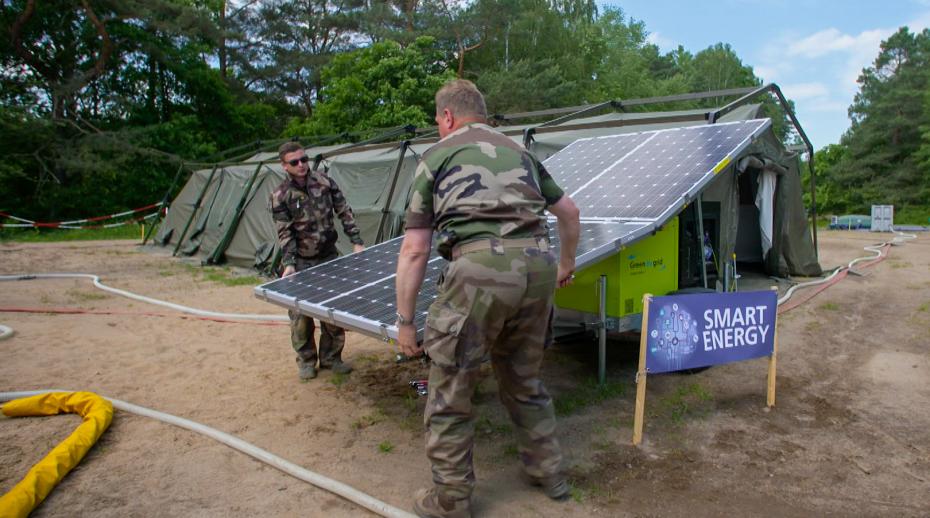
SIPRI is pleased to launch a new video series that explores how the North Atlantic Treaty Organization (NATO) can help address the security implications of climate change, featuring experts from the Brookings Institution, Global Affairs Canada, NATO and the Swedish Armed Forces.
The interviews were conducted during a workshop in Stockholm in December 2022 entitled ‘Climate Security, Sweden and NATO’. The workshop brought together experts and policymakers to discuss how Sweden could complement NATO on climate security and to identify synergies within Swedish development assistance in fragile and conflict-affected states. The series gives a voice to key stakeholders in the field, working towards a mutual understanding of how the security, defence and military communities could contribute to global efforts on climate change and security.
The world is facing a set of acute environmental crises and a darkening security horizon, which together create a new risk landscape. Unsurprisingly, security actors such as NATO have made considerable progress in recognizing and considering the security implications of climate change for their futures. NATO leaders adopted an ambitious action plan on climate change and security at the organization’s 2021 summit in Brussels. As part of this plan, NATO published its first climate change and security impact assessment in June 2022, which recognizes the significant security implications of a changing climate for NATO ‘on a tactical, operational and strategic level’. On the initiative of Canada, there is a NATO Climate Change and Security Centre of Excellence (CCASCOE).
The opportunities highlighted in the videos include NATO’s convening power when it comes to enhancing collective dialogue on complex issues that have a civilian and military component, such as climate change. CCASCOE will support and amplify these discussions towards finding collective solutions to climate change and security. The interviewees stressed Sweden’s trailblazing role on the relationship between climate change and security, and its efforts to mitigate climate change effects. They highlighted the opportunities for sharing knowledge and expertise within the NATO context as the alliance will increase to 32 members with the addition of Sweden and Finland. Interviewees also underlined SIPRI’s leading role within research on the interplay between climate and security, particularly in the fragile states context.
Watch the interviews with:
- Benedetta Berti, Head of Policy Planning in the Office of the Secretary General, NATO;
- Blair Brimmell, Interim Director of CCASCOE, Global Affairs Canada;
- Bruce Jones, Director and Senior Fellow in the Project on International Order and Strategy of the Foreign Policy Program, Brookings Institution;
- Stefan Larsson, Chief of Long Term Strategic Planning and Analysis Division, Swedish Armed Forces.
About SIPRI’s films
SIPRI produces a variety of videos to cater for different viewing preferences and to serve as an alternative platform for providing insights on peace and security. Watch more films on SIPRI’s YouTube channel.